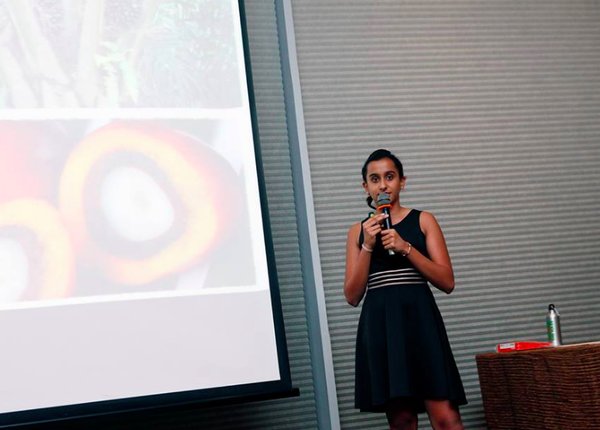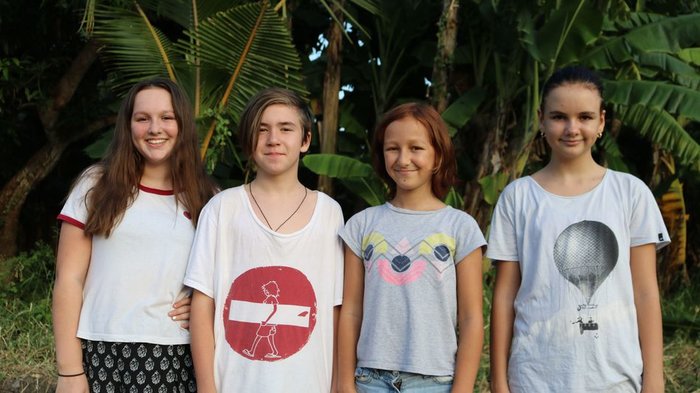As the planet gets warmer and global emissions continue to soar, young activists are rising up to take a personal stand against humans’ more nefarious impacts on the climate.
In Southeast Asia, the smog from forest burning is a perennial problem that continues to occur as farmers continue to illegally set fire to their fields in order to clear them for the next planting season.
Many of these fields are run by palm oil corporations that produce the cheap vegetable oil found in products from snacks to cosmetics.
There is also the issue of conflict palm oil, which is rampant in the industry and is one of the world’s leading causes of rainforest decimation.
Four students in Bali between the ages of 12 and 14 have started a social initiative called Kids Cut Conflict Palm Oil.
On their Facebook page they share pictures of snacks that contain palm oil and try to spread the word that they’re harmful.
One of the four, Indigo Hearn, said the group has also emailed a potato chip brand to appeal to them to stop using palm oil. “They replied that they do not use conflict palm oil and strongly advised us to not email them ever again,” she claims.
The four have also joined a campaign led by non-profit group Wildlife Asia as youth ambassadors to petition against PepsiCo’s use of conflict palm oil. Wildlife Asia is an Australian non-governmental organization that partners with others in Australia and South Asia, it says on its Facebook page.
In Singapore, 14-year-old Gauri Shukla also started a group campaigning against conflict palm oil. Her group, Students of Singapore (SOS) Against Haze, holds talks in schools about the air pollution from burning these fields.
The group also goes on the ground to check out cooking oils used in school canteens, which Shukla uses in her speaking material on global forest fires.

Recently, the United World College of Southeast Asia student has joined forces with People’s Movement To Stop The Haze, an NGO, to identify non-conflict, RSPO (The Roundtable on Sustainable Palm Oil) certified cooking oils.
The certification is given to palm oil farmed in a condition where there was no fire, land conflict, deforestation or peat.
Clearing up plastic bags in Bali
Over in Bali, 15-year-old and 12-year-old sisters Melati and Isabel Wijsen are campaigning against the use of plastic bags on the Indonesian island.
Melati says: “Plastic bags were only introduced in Bali…20 to 30 years ago, and yet they have taken over our lifestyle and negatively impacted the environment and animals.”
She adds that the locals often burn bags to dispose of them, releasing harmful chemicals into the air.
Recently, their group, Bye Bye Plastic Bags, had a big win by getting Bali’s Ngurah Rai International Airport to go plastic-bag free.
Now, only plastic duty-free bags are handed out because they need to be transparent for customs.
Source: Mashable
Women of Green is TURNING UP THE VOLUME of the feminine voice on the planet in order to create the world we know is possible.
